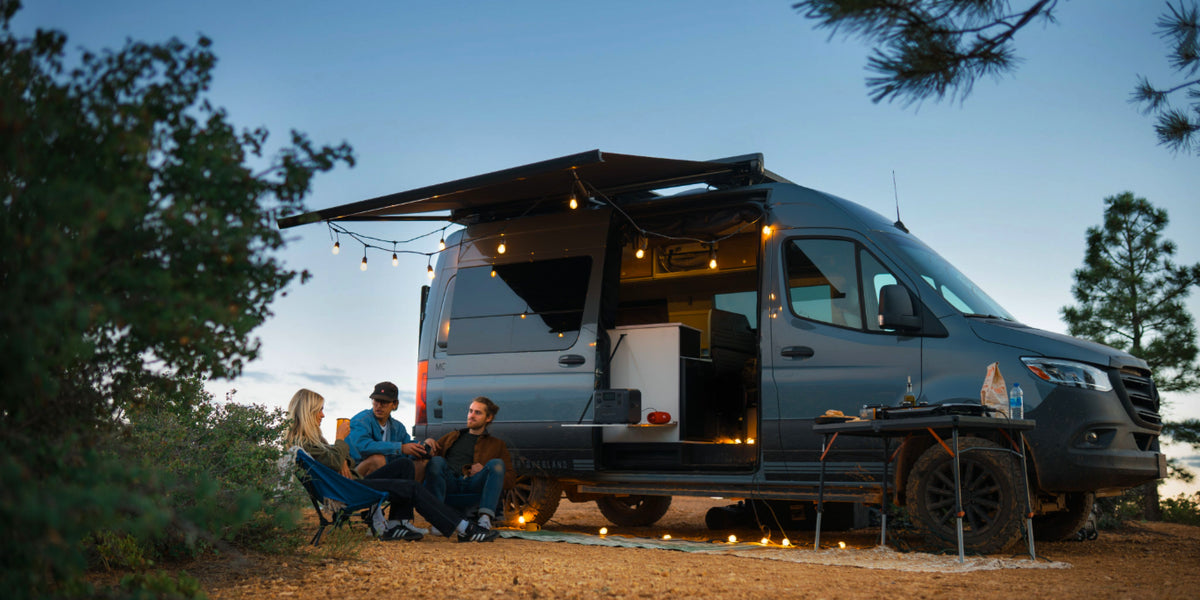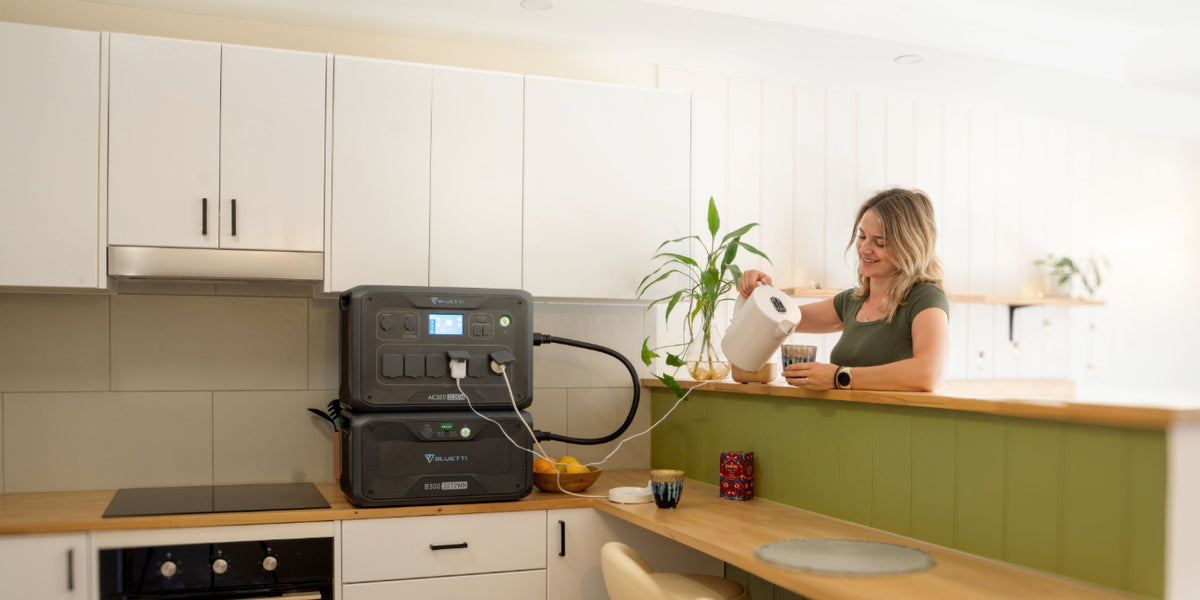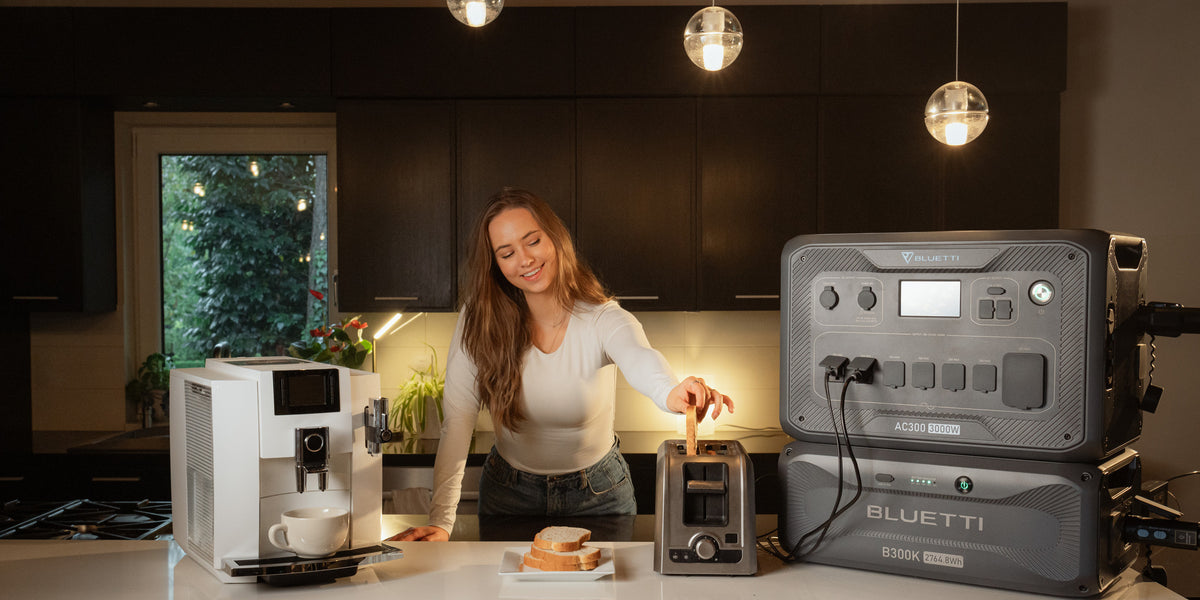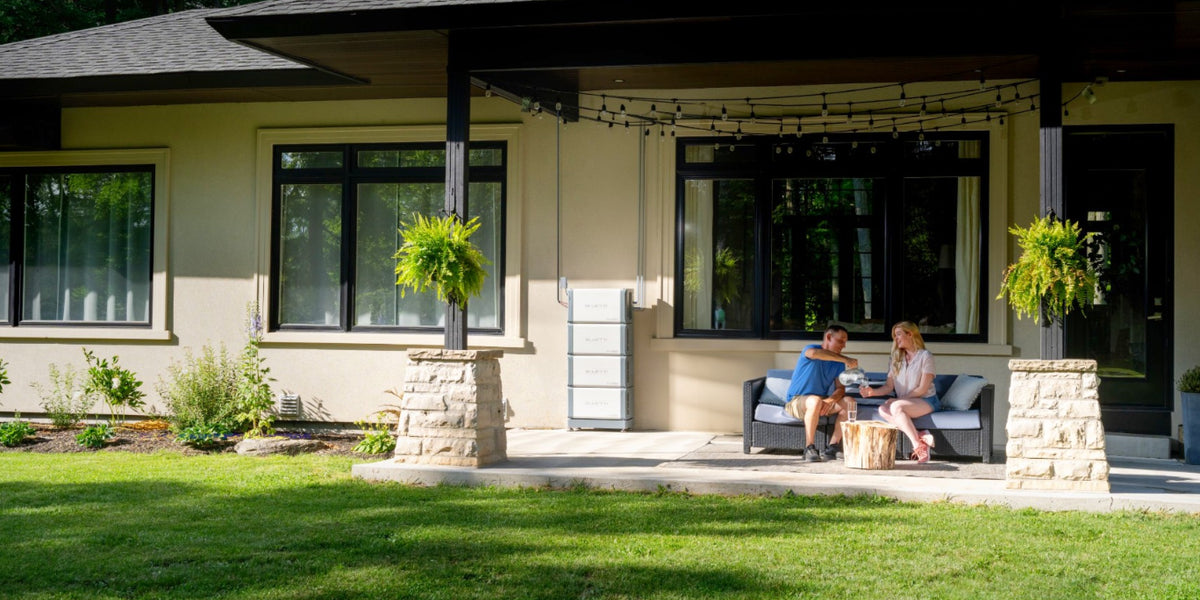Your cart is empty
Shop our productsHow Solar & Gas Generators Work
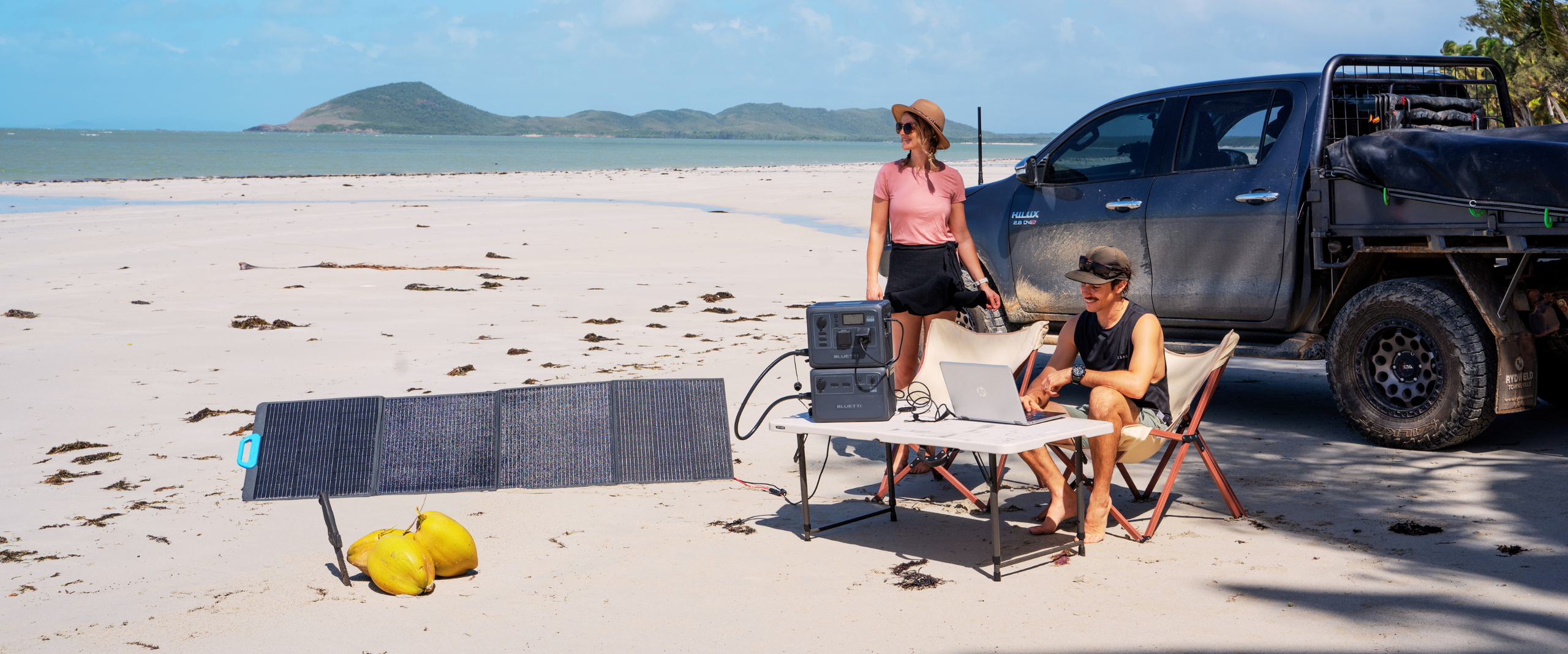

How does solar generator work?
How does gas generator work?
Solar generators convert sunlight into electricity using solar panels. The panels produce DC power, which is regulated by a charge controller and stored in a battery. An inverter then converts the stored DC power into AC electricity to run devices like phones, lights, and refrigerators.
A gas generator turns fuel into electricity. It starts by burning gasoline, diesel, or propane inside an engine, just like a car. The burning fuel creates energy that spins an alternator, which produces electrical power. You can plug devices into the generator to use that power right away. Gas generators are strong and dependable, but they are loud, release fumes, and need constant refueling and upkeep.
Solar Generator VS Fuel Generator
How Solar Generators Back Up Your Gas Generator?
BLUETTI Solar Generators
Home Backup & Off-Grid

AC200L
2,400W | 2,048Wh | LiFePO₄
Refrigerator
(150W)
WiFi Router
(10W)
Lighting
(40W)
Fan
(50W)
CPAP Machine
(60W)
TV
(100W)
Refrigerator
(150W)
WiFi Router
(10W)
Lighting
(40W)
Fan
(50W)
CPAP Machine
(60W)
TV
(100W)
Professional Use
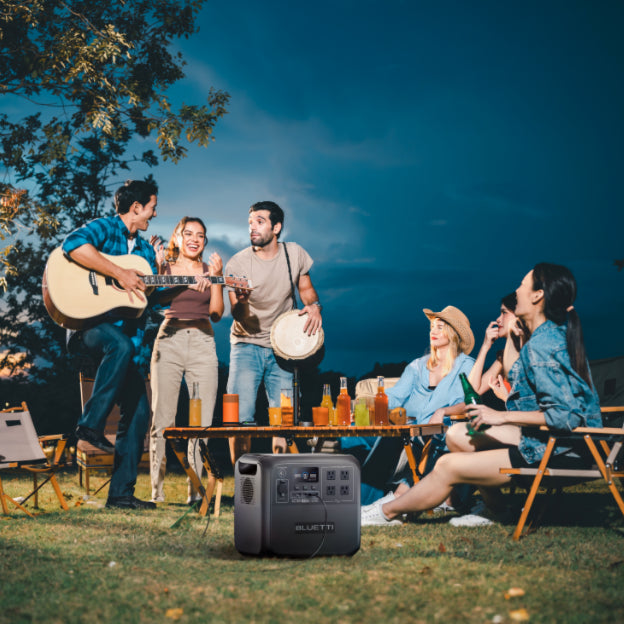
AC180
1,800W | 1,152Wh | LiFePO₄
Drill
(800W)
Laptop
(60W)
Camera
(30W)
Router
(15W)
Monitor
(50W)
Tablet
(20W)
Drill
(800W)
Laptop
(60W)
Camera
(30W)
Router
(15W)
Monitor
(50W)
Tablet
(20W)
Camping & RV

AC60
604W | 403Wh | LiFePO₄
Mini Fridge
(60W)
LED Lights
(10W)
Phone
(20W)
Projector
(100W)
Portable Fan
(30W)
Electric Blanket
(55W)
Mini Fridge
(60W)
LED Lights
(10W)
Phone
(20W)
Projector
(100W)
Portable Fan
(30W)
Electric Blanket
(55W)
Grab & Go

AC50B
700W | 448Wh | LiFePO₄
Phone
(20W)
Laptop
(60W)
Camera
(30W)
LED Light
(10W)
Mini Fan
(15W)
Bluetooth Speaker
(25W)
Phone
(20W)
Laptop
(60W)
Camera
(30W)
LED Light
(10W)
Mini Fan
(15W)
Bluetooth Speaker
(25W)
Join us, get inspired, and make a difference
Become Our Member, and Spread BLUETTI Love



Benefits of Solar Generators

Indoor-safe Home Backup Power
Unlike gas-powered models, solar generators produce no fumes or carbon monoxide, making them safer and healthier for keeping household essentials running during outages.

Silent, eco-friendly Power for Camping
Silent operation of solar generators eliminates the loud engine noise so you can fully experience the peaceful atmosphere of nature while camping. It won't create disturbances or pollute emissions that will harm both wildlife and natural environment.

Steady Power Without Fuel Hassle on Your RV Trip
For RV trips, solar generators provide a stable output that powers fridges, fans, and CPAP machines without problems. With no refueling required, you can easily recharge anywhere using solar energy.

Scalable Smart Power for Disaster Preparedness
A solar generator with expandable capacity and solar recharging keeps your home powered for 3 to 7 days or longer during extended outages, even when fuel stations are down.
How to Choose: Solar Generator vs Gas Generator
Use Solar Indoors, Gas Outdoors
The first thing you need to decide is the location for generator use. Solar generators are indoor-safe. With no emissions or exhaust, they can be safely used in enclosed spaces like bedrooms, living rooms, or basements. Gas generators must always be used outdoors. They emit carbon monoxide and other exhaust gases that can be deadly in enclosed areas.
Creative Tip: If you need to use it indoors or around your family, solar is your friend for peace of mind.
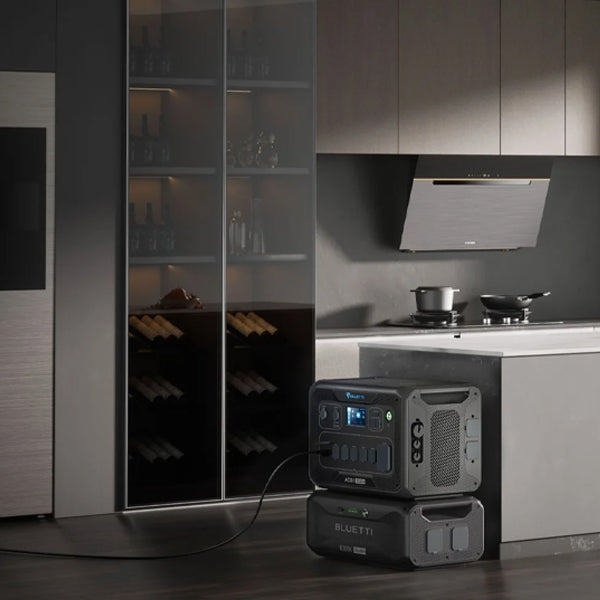
Match Your Power Needs with the Right Generator
Both solar and gas generators can meet power demands ranging from 1kW to over 10kW. As your energy needs grow, solar generators scale with add-on batteries or extra panels, making them great for home or RV use. However, the increased size and weight can be less convenient in tight spaces.
Creative Tip: For smaller or everyday needs, solar is easier to manage and scale over time. If you're dealing with high-demand tools or powering a lot at once, a gas generator or a bigger solar system setup can get the job done.
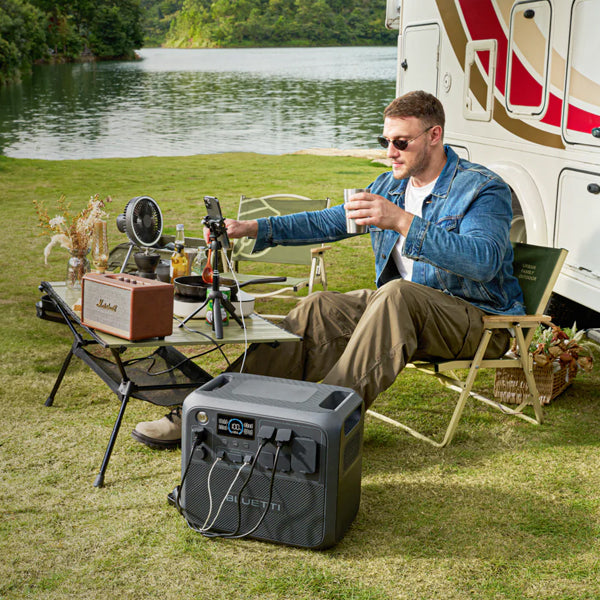
Plan for How Portable Your Generator Needs to Be
Solar generators are generally lightweight and portable, making them easy to carry on road trips, camping, or tailgating. They don’t require extra fuel, which makes them hassle-free for travel.
Gas generators are usually heavier and require fuel storage, which makes them less convenient for frequent transport. Their bulkier design and need for refueling can make them cumbersome, especially for outdoor adventures.
Creative Tip: If you're looking for something portable and easy to move, solar generators offer greater freedom without the need to carry extra fuel.
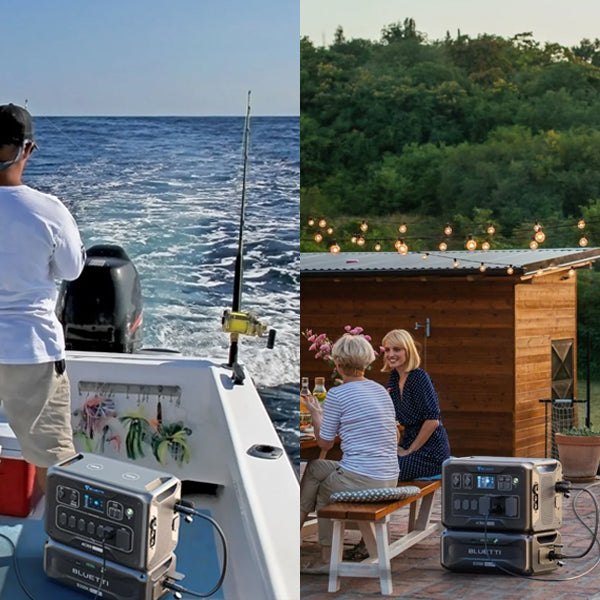
How Much Maintenance You’re Willing to Handle
Solar generators are low-maintenance. You’ll need to clean the solar panels occasionally, but other than that, they require little care. Their battery life generally lasts 5-10 years with proper usage and care.
Gas generators require more upkeep, including oil changes, fuel storage, and spark plug replacements. Their lifespan is often shorter, typically 3-5 years, depending on maintenance.
Creative Tip: If you prefer minimal upkeep, solar generators are a low-maintenance choice. Gas generators require more attention to keep them running smoothly.
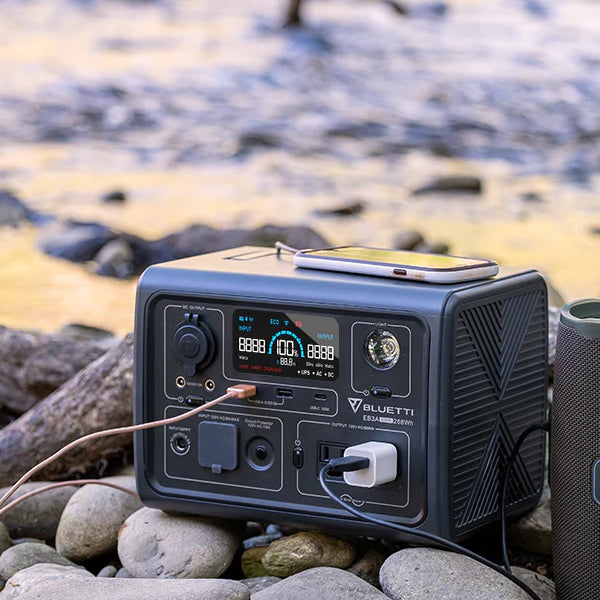
Weigh Long-Term Costs and Benefits
Solar generators have a higher upfront cost, but they save you money in the long run since you don’t need to buy fuel and the maintenance costs are minimal. They are an excellent long-term investment, especially for frequent use in home backup, camping, or RVing.
Gas generators are more affordable initially but come with ongoing fuel costs and regular maintenance. Over time, these costs can add up, especially if you use the generator frequently.
Creative Tip: If you're looking for long-term savings, solar generators offer a one-time investment that will pay off in the long run, while gas generators will continue to incur additional costs over time.
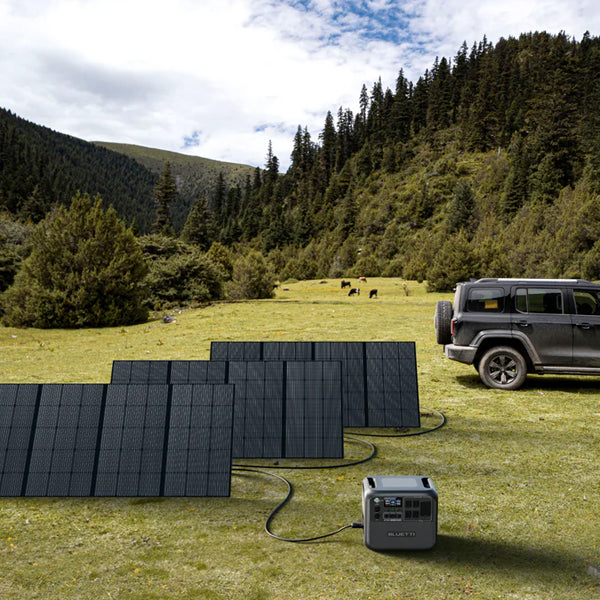
FAQ
-
-
- Q1: Which is better: a solar or gas generator?
- Neither is strictly better—it depends on your needs. Solar is quiet, clean, and great for long-term use. Gas offers instant power but comes with noise, fumes, and maintenance. Today, solar can match high output—just less portable when scaled up.
-
- Q2: Can a solar generator do the job of a gas generator?
- Yes, especially with modular solar systems. You can build the power and storage you need. High-wattage solar setups can handle heavy loads—just be aware they take up more space than a typical gas unit.
-
- Q3: Will a solar generator power an entire home?
- It can. You’ll need a larger system with expandable batteries and maybe split-phase output. It’s not as grab-and-go as a small gas generator, but it works—and runs silently and cleanly the whole time.
-
- Q4: Are solar generators a smart investment?
- If you’re thinking long-term, yes. No fuel bills, no engine servicing, and you can use free sunlight every day. They cost more up front, but offer peace of mind, especially during blackouts or off-grid trips.
-
-
-
- Q5: How do I choose the right solar generator size for my home?
- Start with what you want to power—fridge, lights, Wi-Fi, maybe AC. Add up the wattage, then choose a system with enough capacity and room to expand. Don’t guess—plan based on real needs.
-
- Q6: What can I run with a 2000W solar generator?
- A 2000W unit is more capable than many expect. You can run a fridge, laptop, coffee maker—even a microwave. Just not everything at once. It’s a solid choice for RVs, cabins, or emergencies.
-
- Q7: How long will a 1000W solar generator run?
- It depends on what you plug in. Running a 100W light? Around 10 hours. A 500W blender? About 2 hours. With solar panels, you can keep topping it off during the day.
-
- Q8: Can a solar generator keep a fridge running?
- Yes. Many solar generators can handle a standard fridge for 10–20 hours. Add solar input, and you can stretch that even further. It’s one of the most common real-world uses.
-
-
-
- Q9: How much does it cost to set up a solar generator system?
- Basic setups start under $1,000. Bigger systems with solar panels and battery packs can cost $3,000–$10,000+. The good part? You control how far you scale—and you’re not buying gas every month.
-
- Q10: How much does it cost to install a Generac solar generator?
- Expect to spend $8,000 to $20,000 with install, depending on your home and setup. It’s a big investment, more like a full home energy system. Portable solar units are a more flexible and affordable option.
-
-
-
- Q11: What are the downsides of a solar generator?
- Not many, honestly. They don’t love cloudy days and take longer to charge than gas refueling. And while they can hit high power levels, anything over 5000W starts to get less portable.
-
- Q12: How long do solar generators typically last?
- Good models last years. Lithium iron phosphate batteries can hit 3,000+ charge cycles. That’s around 8–10 years of regular use, with barely any maintenance. Just keep it clean and don’t overdraw it.
-
- Q13: Can a gas generator work with solar panels?
- Not directly, but they can work together. Some people use solar as their primary source and a gas generator as a backup for cloudy days or long outages. It’s a flexible, hybrid approach.
-

















































































